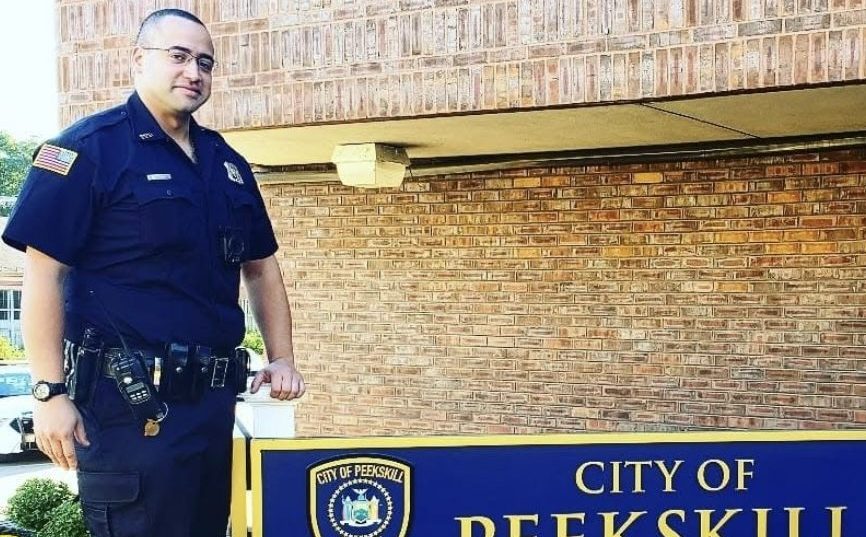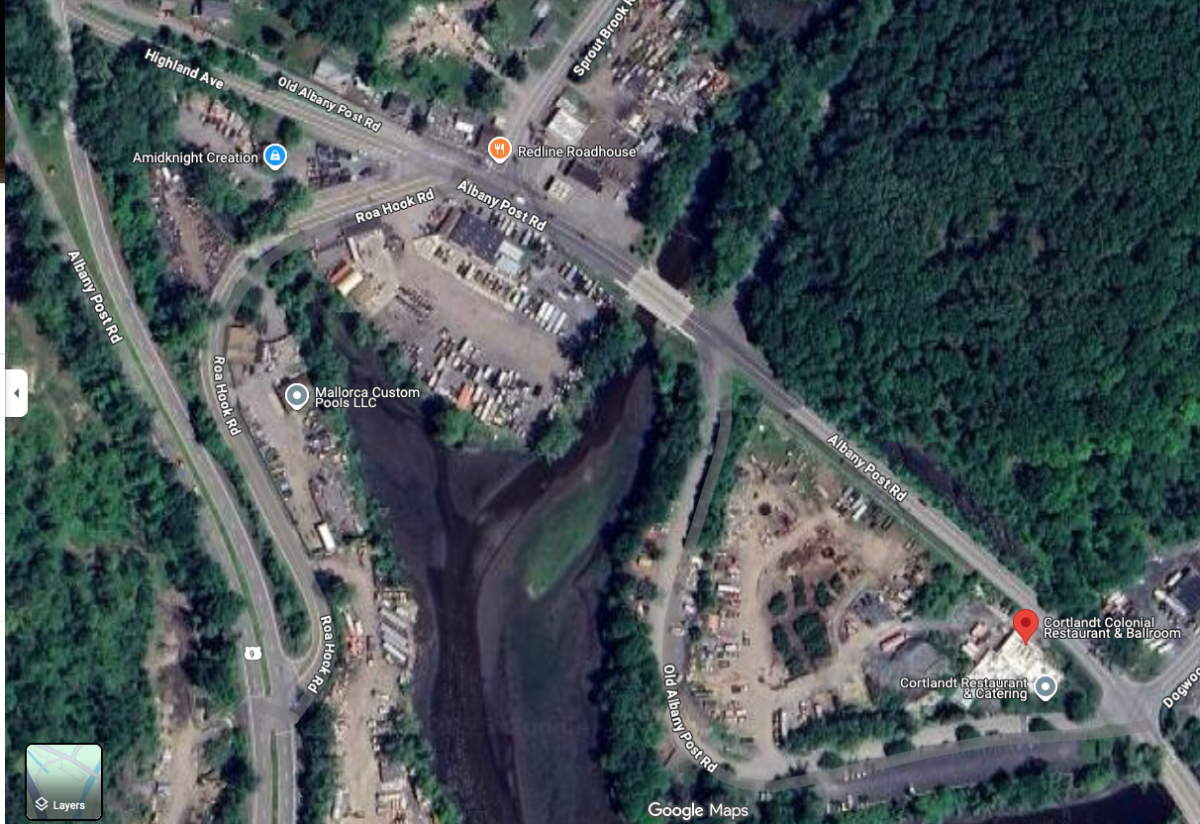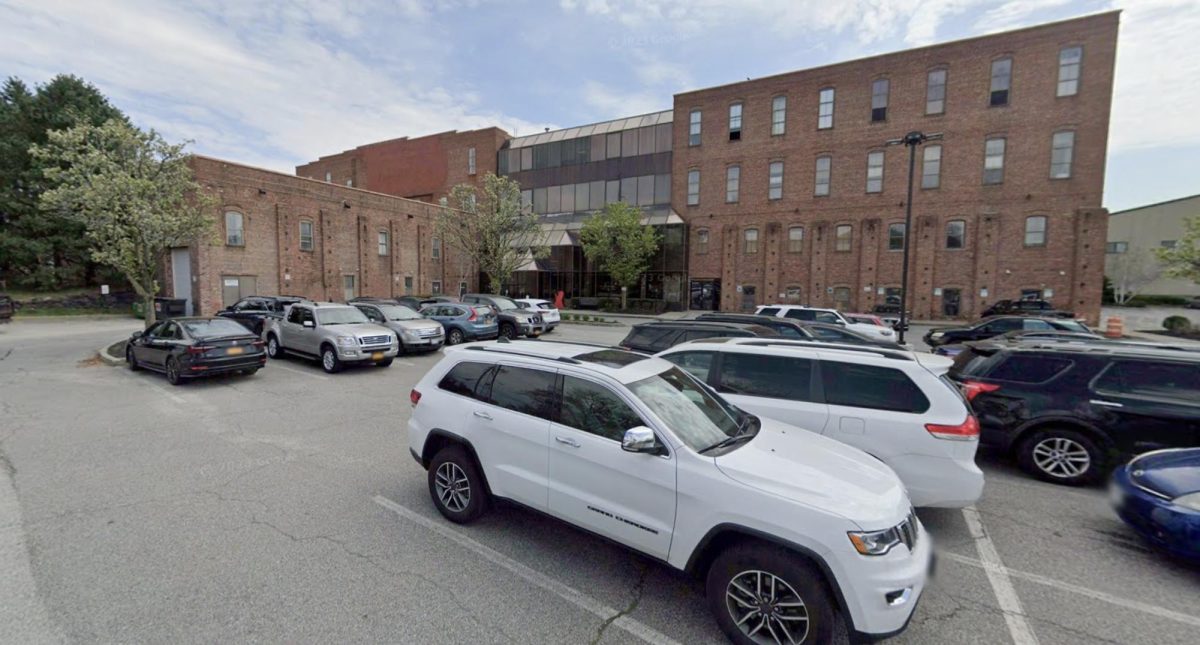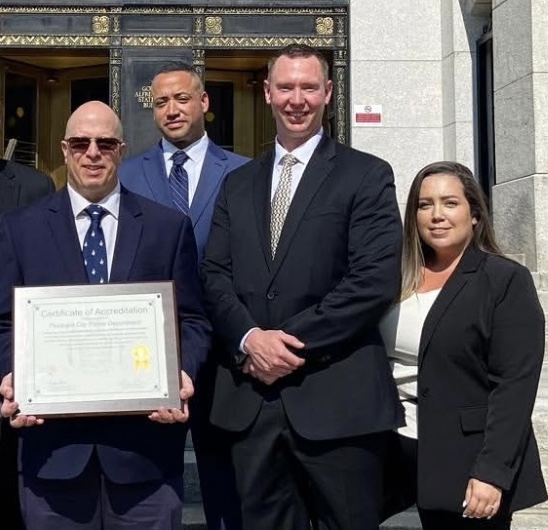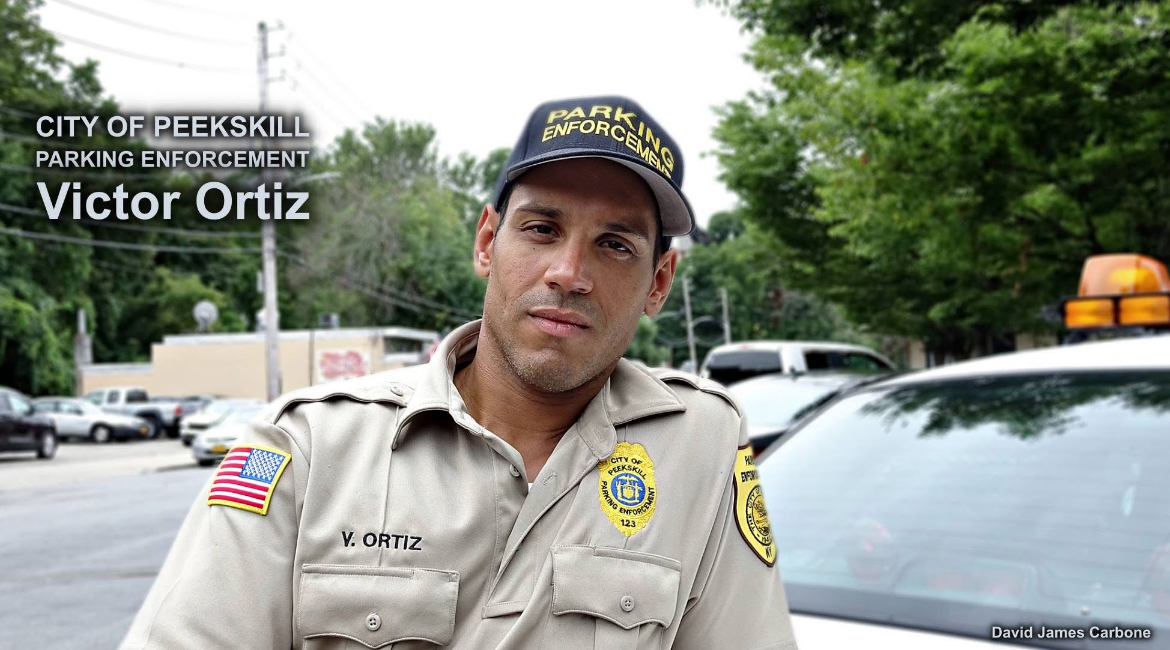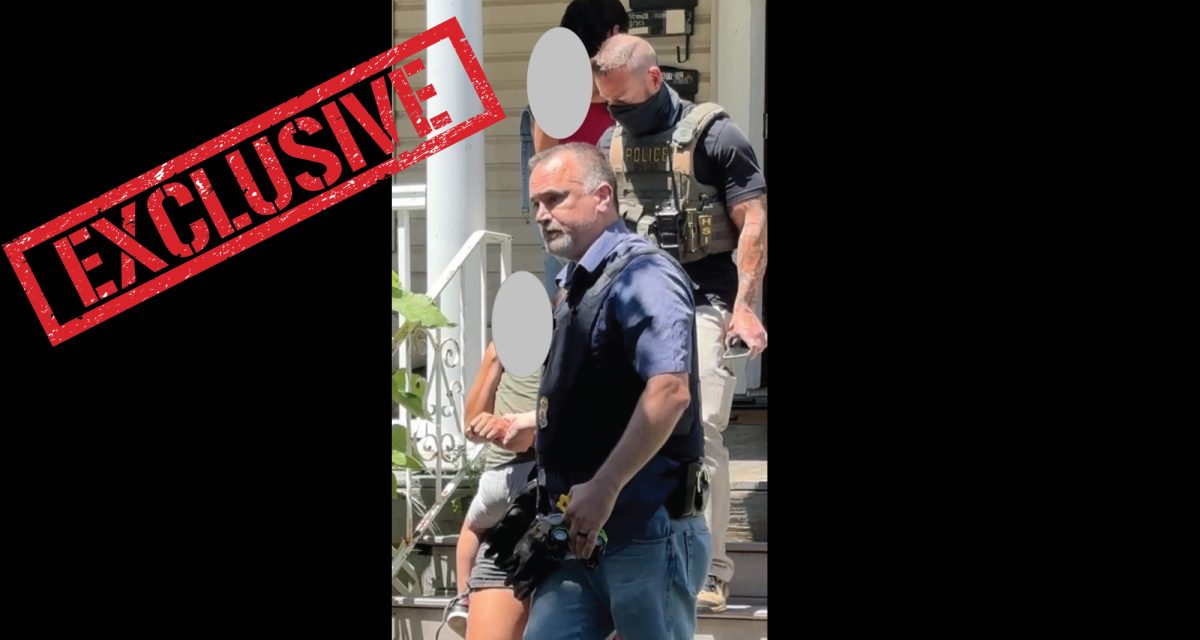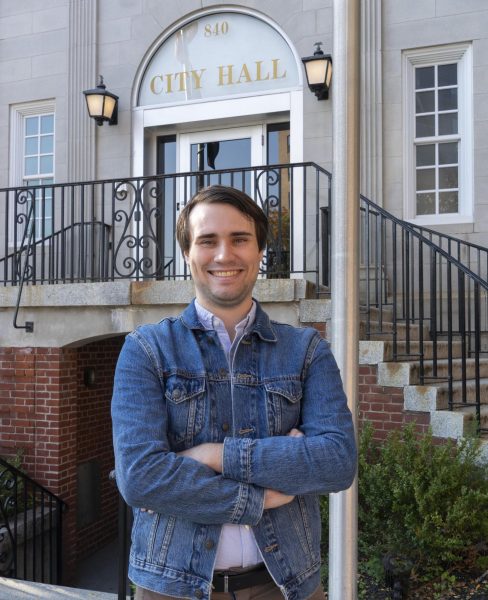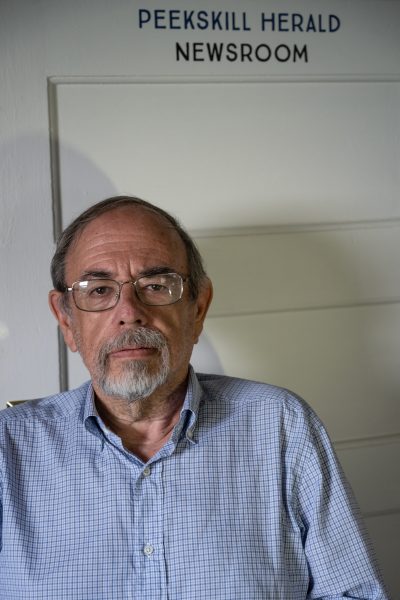A former Peekskill Police Department officer who resigned in February after “satisfying” a “sexual addiction” has filed an Article 78 petition in state supreme court claiming that the City of Peekskill Police department violated the terms of a settlement agreement that led to his departure from the force.
That former patrol officer of eight years, Michael Henderson, received a letter from the New York State Division of Criminal Justice Services (DCJS) on March 10, 2025, informing him his basic training certification was permanently invalidated and he was ineligible for any future certifications, making him unable to work as a police officer in New York state, according to Henderson’s court filings.
In court documents, Henderson claims the Peekskill Police Department only supplied partial information to the DCJS regarding the reason for his resignation and failed to comply with the terms of a settlement agreement. He now seeks the reinstatement of his certification to make him eligible to work as a police officer in New York state, according to the lawsuit.
Henderson’s court filings also allege the DCJS did not give Henderson a fair hearing to present his side of the case.
[An Article 78 proceeding is intended to determine whether a state agency or police department acted outside the scope of their authority. If the court finds in favor of Henderson, it can annul the DCJS decision.]
Henderson resigns in February after inappropriate behavior
Henderson ultimately resigned after Peekskill police learned of an incident in which he covered a camera outside the station women’s locker room and swiped an article of clothing.
On Feb. 8, 2025, around 2:25 p.m. officers discovered the camera in the downstairs armory hall was covered with a black trash bag and two pieces of packing tape, according to a police report that was among the documents filed in court. Review of camera footage showed Henderson was in the vicinity, but the only visible indication of the person covering the camera was a hand, the report said.
The suspicious incident was reported to the on-call lieutenant at about 2:45 p.m. At the request of the lieutenant, Sgt Michael Nolte began to prepare an email with the details of the event and names of employees in the building. However, at 3:05 p.m., Nolte received a call from Henderson, who was off-duty, requesting he meet him in his office before sending the email.
There Henderson admitted to covering the camera. He initially claimed he covered it at the direction of Chief of Police Leo Dylewski, which the chief denied, then claimed his story was a “prank” on Sgt. Nolte.

Three days later, Henderson sent a letter to Lt. Adam Renwick in which he confessed his initial claim about the chief was a lie to have the sergeant disregard his investigation. In the court filings he claimed that his actions were to satisfy a “sexual addiction.”
“There are no excuses for my actions and can only explain that they were provoked by a sexual addiction for which I am currently receiving therapy,” Henderson wrote on Feb. 11.
In Henderson’s June 3, 2025 lawsuit, he claimed he put back the article of clothing because “I had no intention of keeping it.” He described the incident as a “momentary lapse of judgement” and what he said that he thought at the moment was a “harmless misstep.”
Despite Henderson’s self-admitted dishonesty surrounding the event with the camera, Henderson’s lawsuit argues he was forthcoming with volunteering information detailing the incident and correcting his “inaccuracies.”
A letter from Chief Dylewski to the DCJS on March 26 said further investigation revealed Henderson obstructed the view of the surveillance camera on four additional days prior to Feb. 8. Henderson’s letter on Feb. 11 and lawsuit did not reference any other alleged incidents outside of the Feb. 8 incident.
Police department and Henderson agree to settlement
Henderson was never charged with any crime nor had any disciplinary hearing brought against him, according to Henderson’s lawsuit. Instead his inappropriate behavior led to the settlement agreement on Feb. 17.
“Although I gave a full accounting of my actions to Lieutenant Renwick of my off-duty activities, it was agreed that it would be best for all parties that I resign,” Henderson wrote in the June 3 lawsuit.
The settlement agreement between the City and Henderson, stated the two parties have “certain disputes” and “irreconcilable differences” between them and agreed to fully resolve the dispute to avoid attorneys’ fees and other expenses that could result in litigation.
The settlement stated Henderson would submit an irrevocable letter of resignation with an effective date of Feb. 21 and the City would agree to pay his accumulated leave time.
Later Henderson received the March 10 DCJS letter stating the department reported Henderson was removed for cause on Feb. 27, resulting in his basic training certification being stripped.
“This was completely unexpected and devastating to me because it meant that I would not be able to pursue employment as a police officer in New York ever again,” Henderson said in his June 3 lawsuit.
Henderson sent a letter back to the DCJS on March 17 requesting an opportunity to review the documentation on file provided by the department and determine any possible inconsistencies. In a follow-up letter on March 19, Henderson disputed the prior correspondence that he said indicated his removal was a result of a regulation on dishonesty.
On April 21, the DCJS sent a letter to Henderson denying his request for a hearing.
Henderson files lawsuit against city police department and state agency
On June 3, Henderson gave a notice of petition for his lawsuit against the city police department and state agency in which he argued the state violated his due process rights and failed to disclose vital information in their decision to invalidate his certificate.
The lawsuit claims that after Henderson asked the DCJS to review the March 10 decision, the DCJS “covertly” communicated with the Peekskill Police Department. The DCJS obtained three letters from department officials, including Dylewski.
Those written communications included a special report by Sergeant Michael Nolte on Feb. 11, a letter by Lieutenant Alex Demundo on April 1, and the aforementioned letter from Chief Dylewski on March 26.

Henderson said the contents of those letters were prior to the decision and as a result, he didn’t know the basis for the information the DCJS was reviewing on its March 10 decision. Henderson said he was not given the opportunity to respond to their communications or present supporting documents as part of his case because he “had no idea [the communications] even existed.”
Henderson claims the department did not abide by the terms of the settlement agreement. “Respondents acted illegally and beyond the scope of their authority when … Chief Leo Dylewski, arbitrarily and capriciously stated in a missive to the DCJS that Mr. Henderson was forced to resign because of unbecoming behavior, destruction of police department property, and dishonesty, all in violation of the settlement agreement…” the lawsuit alleges.
In addition, he claims the DCJS never received Henderson’s Feb. 11 letter admitting to his inappropriate behavior, nor the settlement agreement.
In the lawsuit, Henderson’s attorney Stephen Preziosi acknowledged that Henderson’s actions were “out of the ordinary and inappropriate” and violated departmental policy.
However, Preziosi said his actions were not criminal. In addition, there were no disciplinary charges ever filed against him or charges pending when he resigned, he said.
The parties in the current Article 78 case have been given until Sept. 5 to file responses in State Supreme Court in Albany.
Preziosi said that the DCJS is informed whenever a police officer leaves a position. In Henderson’s case he said the agreement with the Peekskill Police Department required that, if asked by anyone why he left, the Department could only say they parted company through a mutually satisfactory agreement.


